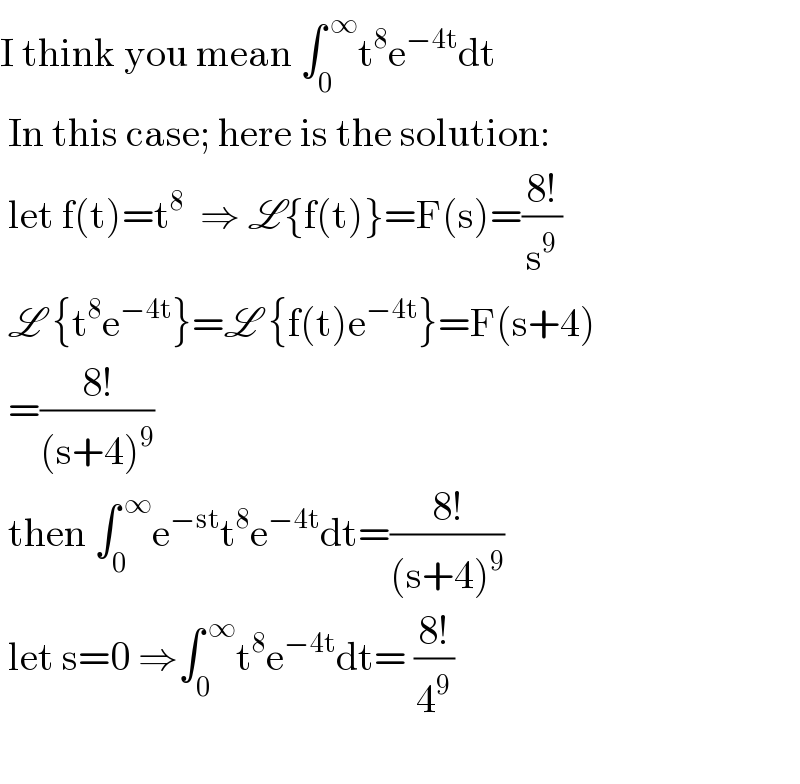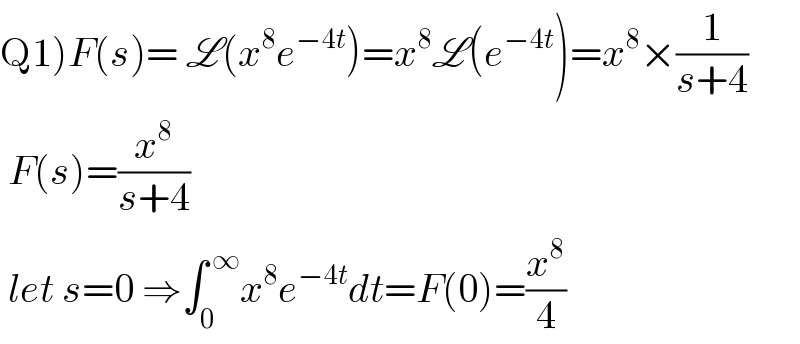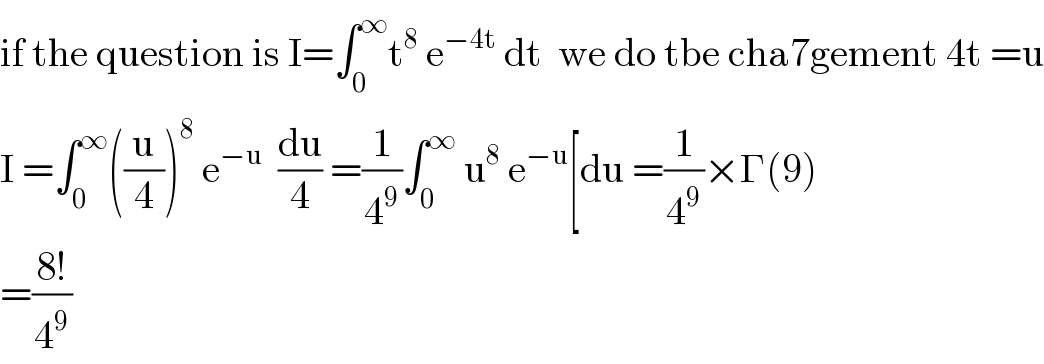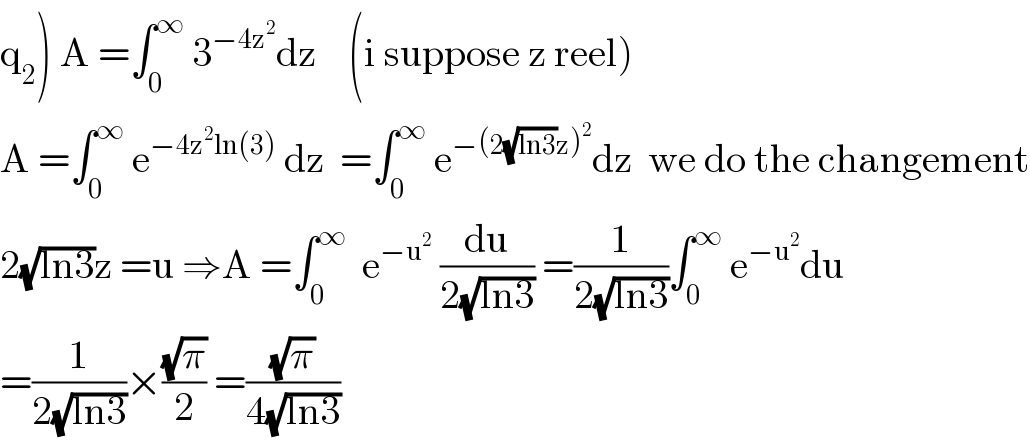
Question and Answers Forum
Question Number 112962 by mohammad17 last updated on 10/Sep/20

Commented by john santu last updated on 10/Sep/20

Commented by Dwaipayan Shikari last updated on 10/Sep/20

Commented by Aziztisffola last updated on 10/Sep/20

Answered by Dwaipayan Shikari last updated on 10/Sep/20
![x^8 ∫_0 ^∞ e^(−4t) dt (1/(−4))x^8 [e^(−4t) ]_0 ^∞ =(x^8 /4)](Q112967.png)
Commented by mohammad17 last updated on 10/Sep/20

Answered by Aziztisffola last updated on 10/Sep/20

Answered by mathmax by abdo last updated on 11/Sep/20

Answered by mathmax by abdo last updated on 11/Sep/20

